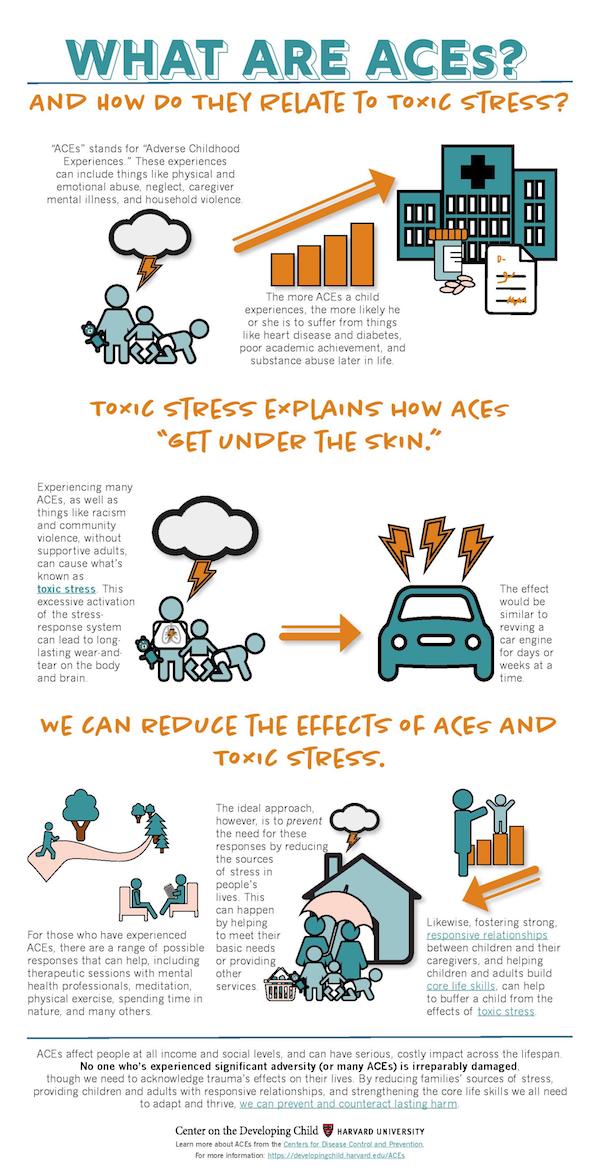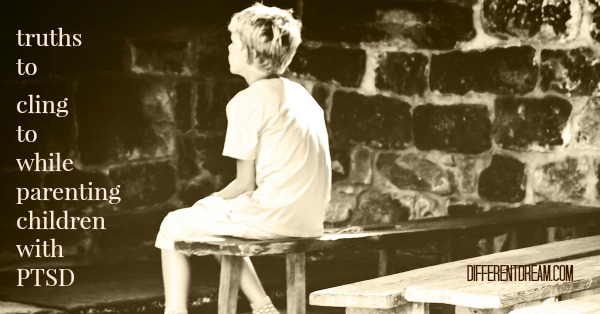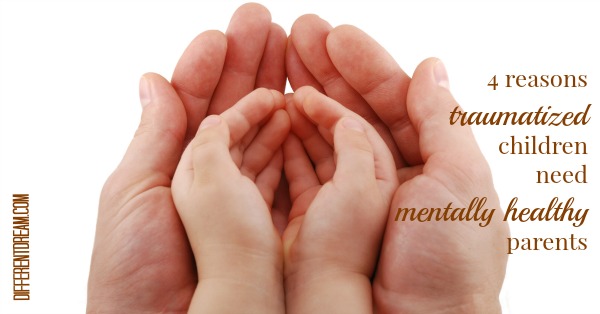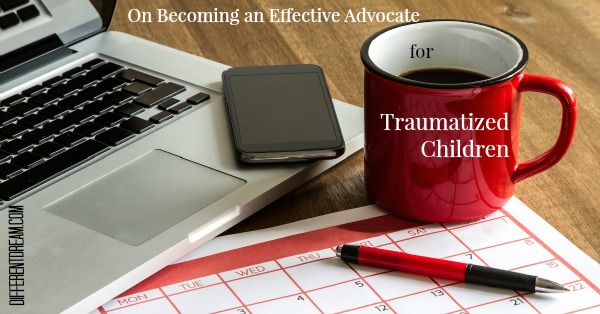The ACEs and Toxic Stress: Implications for Children with Special Needs?

The link between the ACEs and toxic stress have been accepted by mental health experts since the ACEs study results were released in the late 1990s. The general public and members of the special needs community, however, are not equally aware of the study and its implications for children. The Harvard Center for the Developing Child recently created an infographic that explains the link clearly and thoroughly. The infographic can be found below. It is also available at The Center for the Developing Child website. Their web page includes a FAQ section, and the infographic can be downloaded as a PDF there.
My son endured numerous invasive surgeries and procedures in his early years to correct a life-threatening birth anomaly. Based on that experience, I believe the link between the ACEs and toxic stress has many implications for children who undergo invasive medical procedures, live with pain, or experience discrimination or bullying due to special needs. I encourage you to study the infographic, visit The Developing Child website, or read Does My Child Have PTSD: What To Do When Your Child Is Hurting from the Inside Out? to learn more.
Do you like what you see at DifferentDream.com? You can receive more great content by subscribing to the quarterly Different Dream newsletter and signing up for the daily RSS feed delivered to your email inbox. You can sign up for the first in the pop up box and the second at the bottom of this page.
By Jolene
Jolene Philo is a published author, speaker, wife, and mother of a son with special needs.
2 Comments
Submit a Comment
Subscribe for Updates from Jolene
Related Posts
Clinging to Faith while Parenting Children with PTSD
These six truths can help parents cling to their faith when the challenges of raising children with PTSD seem overwhelming.
4 Reasons Traumatized Kids Need Mentally Healthy Parents
Traumatized children need mentally healthy parents for several reasons. Here are 4 of those reasons backed up by research.
How Parents Can Advocate Effectively for Traumatized Children
Traumatized children need adults to advocate on their behalf. This post discusses three skills parents must cultivate to be effective advocates for them.






Jennifer, you are welcome for the information the post provides. If you have questions about how to find a good trauma therapist, this post offers step-by-step guidance: https://differentdream.com/2016/10/find-trauma-therapist-kids/. If you need other help, please email me using the contact button at the top of the page. Jolene
I never expected any of the hardships that came with raising our son, who was born early 26 yrs ago, with two pneumothorax’s. Once the tubes were put in and his lungs healed a week later, I thought the battle was over. However, being without the proper amount of oxygen he needed, as he tried to take his first breaths of life, would later on, cause a battle for our son and us that we are still facing today. When he was about 4, his preschool teacher said she thought he needed glasses, because he couldn’t recognize the letters in the alphabet, but she knew that he knew them. We got him glasses and was told his right eye had a stigmatism, so he had to wear an eyepatch. This was only the beginning. I took him to every professional I knew of, from counselors to neurologist for testing. All we could get from them was, “it’s a processing issue.” He started having ticks so bad, that we couldn’t go anywhere, for his sake, the torturous night of homework, being made fun of, and finally, anxiety so bad, he would hide in the bathroom at school and I’d go get him and bring him home, forced us to write him an IEP. I believe that he is suffering from PTSD, and I’d never really thought about it until now, after reading Differentdream.com. Thank you for sharing your story. You’ve helped me a great deal!